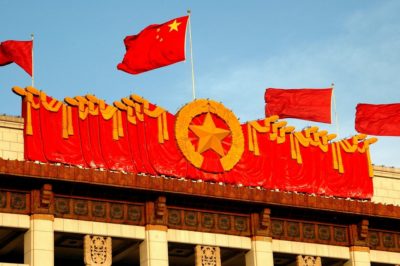Keep Your Golden Eyes on China
Due to the European Debt Crisis, little attention has been paid to the fundamental changes taking place in China. For more than a decade China has served as the biggest creditor to the United States government. But, two years ago, China apparently had a change of heart.
The Chinese have long complained about America’s reckless monetary policies that it imports by pegging its currency to the Dollar. Since 2001, the Federal Reserve has been on an inflation binge; but Americans have yet to fully suffer the consequences of the Fed’s money printing because foreign governments, primarily China, have bought up trillions of dollars by devaluing their own currencies. In order to protect some of the value of their dollars, China buys U.S. assets such as Treasuries and mortgage backed securities guaranteed by the government. But in doing so, China enables the U.S. government to increase spending, which only leads to the exportation of more dollars abroad. China has bought $1,082.9 billion in U.S. Treasuries since 2001 representing 13.5% of all debt issued to the public during that time. But as you can see below, China is no longer content to simply complain about America’s monetary policies.
In November, Bloomberg news reported that a former Chinese government advisor, Ding Zhijie, noted that China may limit its purchases of U.S. Treasuries due to a reduction in dollar purchases from local banks in China. The proof, as they say, is in the pudding. After surging 1,376% from 2001 to 2010, the amount of Treasuries held by China has remained relatively flat at about $1,160 billion since then. From 2001 to 2011, China’s foreign exchange reserves increased by 32% on average, but reserves are only on pace to increase by less than 5% in 2012.
China’s reduction in Treasury holdings is the second major step that is has taken to decouple from the U.S. dollar, the first being its ongoing massive accumulation of gold. However, America’s record trade deficit with China this year shows that more action will be needed than what is currently planned. According to Ding, China wants to stabilize and possibly reduce its foreign currency reserves, while allowing the Yuan to gradually rise in value at no more than 1% a month. However, China cannot have its monetary cake and eat it too. The Federal Reserve is upping the inflationary ante buy buying at least $1 trillion in government bonds and mortgage-backed securities on an annual basis. And the Fed will surely buy more as retiring baby boomers push the budget deficit past $2 trillion. This means that the U.S. will attempt to export even more inflation abroad. If the Bank of China does not buy these dollars, supply will quickly overrun demand among Chinese commercial banks and the dollar will drop in value by far more than 1% a month.
Politicians in the U.S. have demonstrated that they are willing to sacrifice the value of the dollar rather than make unpopular cuts to entitlements. There will soon come a time when China will either have to allow the Yuan to appreciate substantially or to go down with the dollar. And given its accumulation of gold, China will not only pursue the first option, but also put the Yuan in a position to replace the dollar as the next world reserve currency.
Devin Roundtree received his M.A. in economics from the University of Detroit Mercy.









